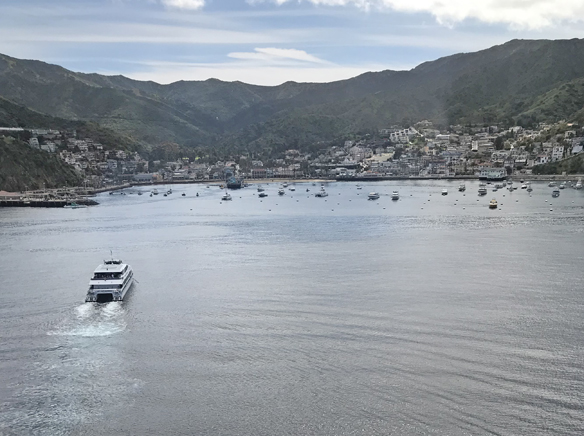Creating new off-season events to bring visitors to Avalon, increasing the sales taxes, and changing from permits for short-term rentals to licenses were among the ideas discussed at last week’s special City Council study session on increasing the town’s revenues.
After a brief discussion among the council members, they agreed to meet again on Thursday, Aug. 22, for the next revenue study session.
Asked for her number-one take away from the study session, Council Member Cinde MacGugan-Cassidy said, “I think it is important to recognize that we can’t just keep raising taxes and fees to cover our costs. We need to be creative in generating visitor revenue instead. It would also be prudent to really delve in to whether we really have a handle on our expenses and are making the most fiscally responsible choices rather than the easiest when it comes to spending money.”
Responding to the same question, Council Member Oley Olsen’s said, “A quarter percent increase in sales tax in next year’s election” would get the city about $250,000.
“That should be half of it,” Olsen said.
(Finance Director Matthew Baker said essentially the same thing during the study session. State law would limit a sales tax increase to 0.25%.)
“We lost $100,000 from the Successor Agency,” Olsen said, referring to the agencies created when then-Gov. Jerry Brown abolished redevelopment agencies.
Steve Hoefs, the newest council member, indicated during and after the meeting that he wanted to see more off-season events. He pointed out that the Grand Prix was basically a week-long event.
“We need to generate revenue, but we need to do it in a way that doesn’t impact fees,” Hoefs said.
He told the Islander that the city shouldn’t raise fees until other options have been explored.
During the study session, Hoefs proposed the creation of a committee to look at creating off-season events.
Mayor Anni Marshall said she would like to see all the city departments come up with revenue generating ideas. Marshall also said she wanted to look at reducing the city’s costs.
Among the options Finance Director Baker mentioned was delaying capital improvement projects.
However, Marshall said the cost of construction goes up if you delay.
“We can sell city of Avalon merchandise,” she said.
She suggested selling wine and beer at the fuel dock.
Hoefs said the city was underutilizing city properties.
Olsen said he would be interested in an agenda item to look at the sales tax.
The council also discussed increasing the transient occupancy taxes and utility user taxes.
Hoefs, however, expressed concern that raising the short-term rental tax would make Catalina too expensive.
According to Planning Director Amanda Cook, the city has been looking at changing short term rentals from a use that requires a conditional use permit to one that requires a license.
Baker said other cities have a utility use tax, but those cities have a larger population than Avalon.
Boat traffic to the island was also a concern. “We saw a decrease in our vessel traffic this past winter, partially because of the rates of the harbor,” she said.
Marshall said she would like to see if the Catalina Express would see value in bringing back the birthday promotion.
A woman in the audience said the city needed to figure out how to bring visitors over to Catalina for overnight stays.
Chamber President and CEO Jim Luttjohann said the time frame between when travelers “look” at a potential destination and when they “book” a destination is getting narrower.
Luttjohann also said the Chamber has learned that while consumers calculate the cost of taking a boat to Catalina, they don’t calculate the cost of driving to other destinations.
According to Luttjohann, cruise ship passengers are returning to the boats early because there is a perception that there is not enough to do during the second half of the day.
Harbor Master J.J. Poindexter pointed out that cruise ships promote only certain businesses, rather than all of them.
Luttjohann suggested the city revisit film permit fees and suggested adding a non-refundable application fee.
Asked for his take away from the study session, Finance Director Matthew Baker said, “The City needs to continue to work with key stakeholders to identify opportunities to increase revenues in order to maintain current levels of service, as operating expenditures are outpacing projected revenue growth. The study session provided staff with direction regarding where to focus its efforts to aid future discussions.”











